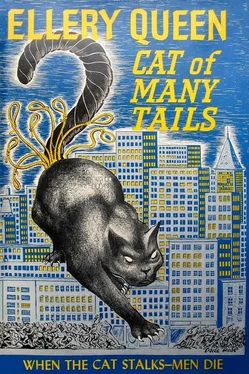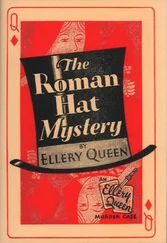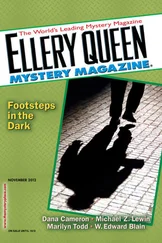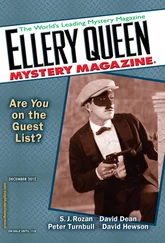“To the last man and woman,” said Frankburner, a ring coming into his voice, “we’re against vigilante law. But we’re asking you, Mr. Mayor, what other recourse we have. My wife or my mother might be feeling that silk cord around her throat tonight, and the police wouldn’t be in on it till it was all over but the funeral arrangements.
“Mr. Mayor, we’ve invited you here tonight to tell is what plans you and the law-enforcement authority have for giving us the protection we feel we haven’t got.
“Ladies and gentlemen. His Honor, the Mayor of New York.”
The Mayor spoke for a long time. He spoke in a sober, neighborly way, exercising his considerable charm and knowledge of the City’s people. He traced the history of the New York Police Department, its growth, its gigantic organization, its complexity. He cited the record of its eighteen thousand men and women in guarding law and maintaining order. He gave some reassuring statistics on homicide arrests and convictions. He went into the legal and social aspects of vigilantism and its threats to democratic institutions, its tendency to degenerate from original high purposes to mob rule and the satisfaction of the worst passions of the lowest elements. He pointed to the dangers — violence begetting violence, leading to military intervention, to martial law, and to the suppression of civil liberties, “the first step on the road to fascism and totalitarianism.”
“And all this,” the Mayor said goodhumoredly, “because temporarily we have failed to locate a single homicidal maniac in the haystack of a city of over seven and one-half millions of people.”
But the Mayor’s speech, for all its ease and sanity and persuasiveness, was not eliciting those little signs and responses by which veteran public speakers gauge the success or failure of their exertions. This audience gave no signs and responses whatever. It simply sat, or stood, listening. A multibreathing, unstirred entity waiting for something... a loosening word.
The Mayor knew it; his voice took on an edge.
His party knew it; they whispered to one another on the platform with exaggerated ease, conscious of the eyes, the television cameras.
Rather abruptly, the Mayor asked the Police Commissioner to give an accounting of the specific measures already taken and “being planned” for the apprehension of the Cat.
As the Commissioner approached the rostrum, Ellery rose in the audience and began to walk down the central aisle toward the press section, scanning the ranks of human heads.
He spotted Jimmy McKell shortly after the Commissioner began to speak.
McKell was twisted about in his seat, glaring at a girl three rows behind him. The girl, pink, was looking at the Commissioner.
Celeste Phillips.
Ellery could not have said what thought, feeling, intuition kept him in the vicinity. Perhaps it was merely the sight of familiar faces.
He dropped to his heels in the aisle at the end of Celeste’s row.
He was uneasy. There was something in the air of Metropol Hall that affected him unpleasantly. He saw that others were in the grip of the same disquiet. A sort of mass auto-intoxication. The crowd breathing its own poisons.
And then he knew what it was.
Fear.
The crowd breathing its own fear. It came out of people in invisible droplets, loaded down the air.
What had seemed patience, passivity, expectancy... nothing but fear.
They were not listening to the voice of the man on the platform.
They were listening to the inner voice of fear.
“THE CAT!”
It came as the Commissioner turned a page of his notes in the silence.
He looked up very quickly.
The Mayor, Dr. Cazalis, half-rose.
Twenty thousand heads turned.
It had been a woman’s scream, pitched to a rare level and held there. It raised the flesh.
A group of men were pushing their way with flailing arms through the standees at the rear of the Hall.
The Commissioner began to say: “Get that woman qui—”
“THE CAT!”
A little eddy of noise began to spin; another; another. A man rose from his seat, a woman, a couple, a group. Craning.
“Ladies and gentlemen, please be seated. Just a hyster—”
“THE CAT!”
“Please!” The Mayor, on the rostrum beside the Commissioner. “Please! Please!”
People were running along the side aisles.
At the rear, a fight was going on.
“THE CAT!”
Somewhere upstairs a man’s voice bellowed. It was choked off, as if he were being throttled.
“Take your seats! Officers!”
Bluecoats materialized all over the auditorium.
The disturbance at the rear was now a yeasty corruption, eating into the main aisle, nibbling at the seats.
“THE CAT!”
A dozen women began to scream.
“HE’S HERE!”
Like a stone, it smashed against the great mirror of the audience and the audience shivered and broke. Little cracks widened magically. Where masses had sat or stood, gaps appeared, grew rapidly, splintered in crazy directions. Men began climbing seats, using their fists. People went down. The police vanished. Trickles of shrieks ran together. Metropol Hall became a great cataract obliterating human sound.
On the platform the Mayor, Frankburner, the Commissioner, were shouting into the public address microphones, jostling one another. Their voices mingled; a faint blend, lost in the uproar.
The aisles were logjammed, people punching, twisting, falling toward the exists.
Overhead a balcony rail snapped; a man fell into the orchestra. People were carried down the balcony staircases. Some slipped, disappeared. At the upstairs fire exits hordes struggled over a living, shrieking carpet.
Suddenly the whole contained mass found vents and shot out into the streets, into-the frozen thousands, in a moment boiling them to frenzy, turning the area about Metropol Hall into a giant frying pan. Its ingredients sizzled over the police lines, melting men, horses, machines, overflowing the intersections and pouring uptown and down, toward Broadway and toward Ninth Avenue — a smoking liquid that burned everything in its path.
Ellery remembered shouting Jimmy McKell’s name as the stampede began, remembered pointing to a petrified Celeste Phillips, trying himself to buck the wall of flesh which pushed him back. He managed to struggle on to a seat, keep his footing there. He saw Jimmy fight his way slowly over three rows, reach the terrified girl, seize her waist. Then they were sucked into the mass and Ellery lost them.
He devoted himself thereafter to keeping off the floor.
A long time afterward he found his father helping the Mayor and the Commissioner direct rescue operations. They had no time for more than a few words. Both were hatless, bleeding, in tatters; all that was left of the Inspector’s jacket was the right sleeve. No, he had not seen McKell or the Phillips girl. Or Dr. Cazalis. His eye kept stealing toward the neat and lengthening line of the dead. Then the Inspector was called away and Ellery plodded back into Metropol Hall to help with the casualties. He was one of an impromptu army: police, firemen, ambulance doctors, Red Cross workers, volunteers from the streets. Sirens kept up their outcry, silencing the moans of the injured.
Other horrors took shape as reports kept pouring in. The mob in fleeing had accidentally broken some shop windows in the side streets between Eighth Avenue and Broadway. Looting had begun, led by hoodlums, loiterers, kid gangs. Bystanders who had tried to interfere had been beaten; shopkeepers had been assaulted and in some instances knifed. For a long time the looting had threatened to get out of hand; there was a furious hour as theaters emptying into Broadway had fed the chaos. Hotels had locked their doors. But the police drove patrol cars into the mobs, mounted patrolmen charged concentrations of rioters, and gradually they were dispersed. Hundreds of stores had sustained broken windows and rifled stocks as far south as 42nd Street. Polyclinic Hospital was bedding the injured in corridors; Red Cross emergency first-aid stations had been set up throughout the Times Square area. Ambulances were speeding into the district from as far north as Fordham Hospital. Lindy’s, Toots Shor’s, Jack Dempsey’s, other restaurants in the vicinity were sending coffee and sandwiches to the relief workers.
Читать дальше












